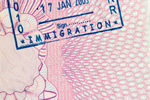Hong Kong government school system shocks expat parents

Hong Kong government school system shocks expat parents
Nowadays and due to the ever-increasing fees for education at Hong Kong’s international schools, many expat parents are forced to settle for education at a government-funded school. Known as ‘Chinese medium of instruction’ (CMI) schools, the head teachers simply don’t expect expat children to be enrolled, in spite of the fact that long-term expats hope their kids will integrate into the local system, learn Cantonese and finally find a job in the region. Parents who themselves grew up in the territory or permanently settled before starting a family tend towards putting their offspring through the Chinese system rather than exposing them to the private international schools with their exclusively English instruction.
Problems usually begin with having to persuade the heads of CMI schools to actually admit non-Chinese pupils but, for many, continue with the kids themselves having difficulties such as a lack of belief in their ability to learn the local language. This can result in English-speaking expat children being isolated along with other non-Chinese students and getting far less challenging assessments. Other difficulties include the vast amount of memorisation expected as a part of the curriculum, along with an unusually heavy burden of homework. One expat parent told the media his son had been given 67 homework tasks over just 18 days, with assignment instructions written in Chinese. Also in Chinese are PTA meeting details and other important school notices. Hong Kong’s Southeast Asian minorities have to deal with the same issues, but don’t have the money to send their children to private schools or buy extra tuition.
The main reason why expats are now rejecting international schools is that they don’t prepare students for jobs in the region with bilingual requirements. Whilst the education they provide is of a good standard and can easily lead to study at a UK or USA university, the crunch comes when students return to Hong Kong with their degrees. Unfortunately, they’re unlikely to find suitable jobs as they’re unable to speak Chinese. Most will need to start their careers as expats, much as did their parents, thus wasting time and money.
In addition, with the ever-increasing cost of everyday living in Hong Kong, even comparatively well-paid and supported expat professionals are balking at the huge cost of international education as regards tuition fees and extras including the non-refundable admission fees. Not every expat working on the island receives the full cost of education for their children as part of their relocation package, as international employers are tightening their belts and will continue to do so for the foreseeable future. In one survey of expatriate parents, several actually admitted to financial insecurity as a result of diminishing perks.
Related Stories:
- Is Kuwaitization the unintended result of the oil price crash? - July 20, 2020
- Expats in Malaysia still banned from overseas travel - July 17, 2020
- HSBC Asia to cut back on internal expat relocations - July 16, 2020
- Tips on integrating for newly-arrived expats - July 15, 2020
Latest News:
- Tips on a trouble-free relocation as an expat overseas - July 20, 2020
- Expats find peace in the covid-19 refuge of Dahab town - July 20, 2020
- Is Kuwaitization the unintended result of the oil price crash? - July 20, 2020
- Expats unhappy abut changes to Korean points-based visa system - July 17, 2020
- Chiang Mai and Bangkok no longer bargain locations for expats - July 17, 2020
- Expats in Malaysia still banned from overseas travel - July 17, 2020
- Vietnam welcomes expats to its safe, affordable lifestyle - July 16, 2020
- Asian tiger economies reach out to expats in Hong Kong - July 16, 2020
- HSBC Asia to cut back on internal expat relocations - July 16, 2020
- Tips on integrating for newly-arrived expats - July 15, 2020


